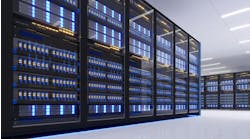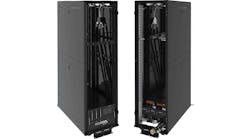Details Emerge On Microsoft’s $1.8 Billion Investment In Atlanta Data Centers Amid Tax, Development Wrangles
With the public release of planning documents last month, additional details have been revealed about Microsoft’s planned data center expansion in the Atlanta, Georgia area, characteristic of hyperscale users' rapidly growing interest in the region.
With an investment led by TA Realty and EdgeConneX, the eventual $1.8 billion investment will focus on three physical data centers with a total power capacity of 324 megawatts (MW), effectively doubling the size of the current data center deployments in the metropolitan Atlanta area.
Construction on Phase 1 of the project is expected to begin later this year on the first 612,000 square foot data center building, with the entire project scheduled for completion by 2029. The phase 1 data center is expected to be online by 2026.
The entire data center campus will exceed 2 million square feet in size, with three roughly identical data center buildings. The campus, southwest of Atlanta in Union City, is required to be completed by 2032.
Not the Only Atlanta-area Site
Microsoft has acquired at least 480 acres in the Atlanta area, spending no less than $171 million, with the initial 136 acre site, in Union City, being acquired in April of this year at a cost of $53.5 million.
In May, CoStar reported on Microsoft's purchase of more land near Atlanta to grow its national data center footprint, noting the cloud giant's snapping up more than 300 acres south of city since February.
According to the minutes of the Development Authority of Fulton County, the total investment in this project is projected at $1,842,000,000, resulting in 50 permanent full time jobs and 400-600 temporary construction jobs for building and developing the site.
A 10 year economic impact was estimated at $2,884, 919,877, with an estimated $200 million in tax revenue over the same ten years, even with the inclusion of the $75 million in tax abatement approved by the Authority.
Microsoft has been acquiring and developing data center sites in Georgia's Fulton and Douglas counties for the past several years.
Fulton County refers to the new development as “Project Steamboat.” As a point of reference, the property currently generates an annual tax revenue of just over $12,000.
Details on Tax Abatement
The primary argument for the tax abatement was the extraordinary costs in developing the proposed site, expected to run over $40 million, due to the extreme nature of the terrain.
According to the meeting report:
“The property tax incentive requested would help offset the significantly excessive $43.5 million site development costs, including mitigating the 90-foot fall on the site, as well as substantial excavation of the site’s extremely rocky topography and retainage mechanisms.
In addition, this is a highly competitive EDO as the customer is simultaneously considering other locations outside of Fulton County.
Without a property tax incentive, the property costs associated with this site are expected to be higher than 3 of the 4 other sites under consideration. The Applicant has demonstrated long-term commitments to sustainability, environmental awareness and diversity."
Many Partners, with Microsoft as the Final User
As mentioned above, TA Realty and EdgeConneX are leading the investment and operations for the data center campus site with Burr Computer Environments, a Texas-based design and engineering firm, as the site developer.
Burr is a global firm with its specialty being the design of of large scale data center facilities. Earlier this year, Microsoft acknowledged that they would be the end-user customer for this site.
GA Data Center Debate Still Smolders
In March, as noted by DataCenter Dynamics, the Georgia Senate passed a bill to suspend data center tax exemptions. Pitched as a pause that would allow the state to assess data centers' impact on the grid, the bill would have suspended tax breaks for data centers for two years.
In May, Georgia Governor Brian Kemp vetoed the bill, saying it would undermine the state's business community. Local news has reported on how the Georgia data centers tax break debate puts industry interests at loggerheads with environmentalists.
The governor's veto holds -- for now. In May, as again reported by DCD, Atlanta City council members put forth another bill to block data center developments, with proposals seeking to prohibit new projects around city's central Beltline region.
Atlanta's NBC TV affiliate 11Alive reported this May on two Atlanta City Council members seeking limits on data center construction in the city.






